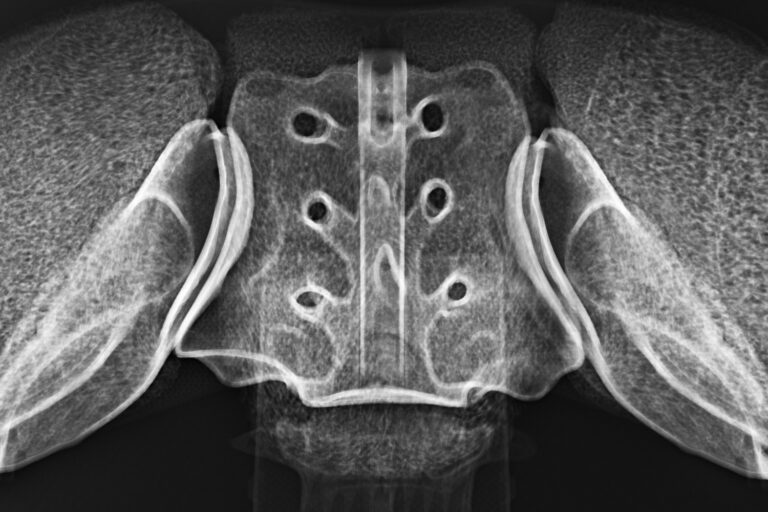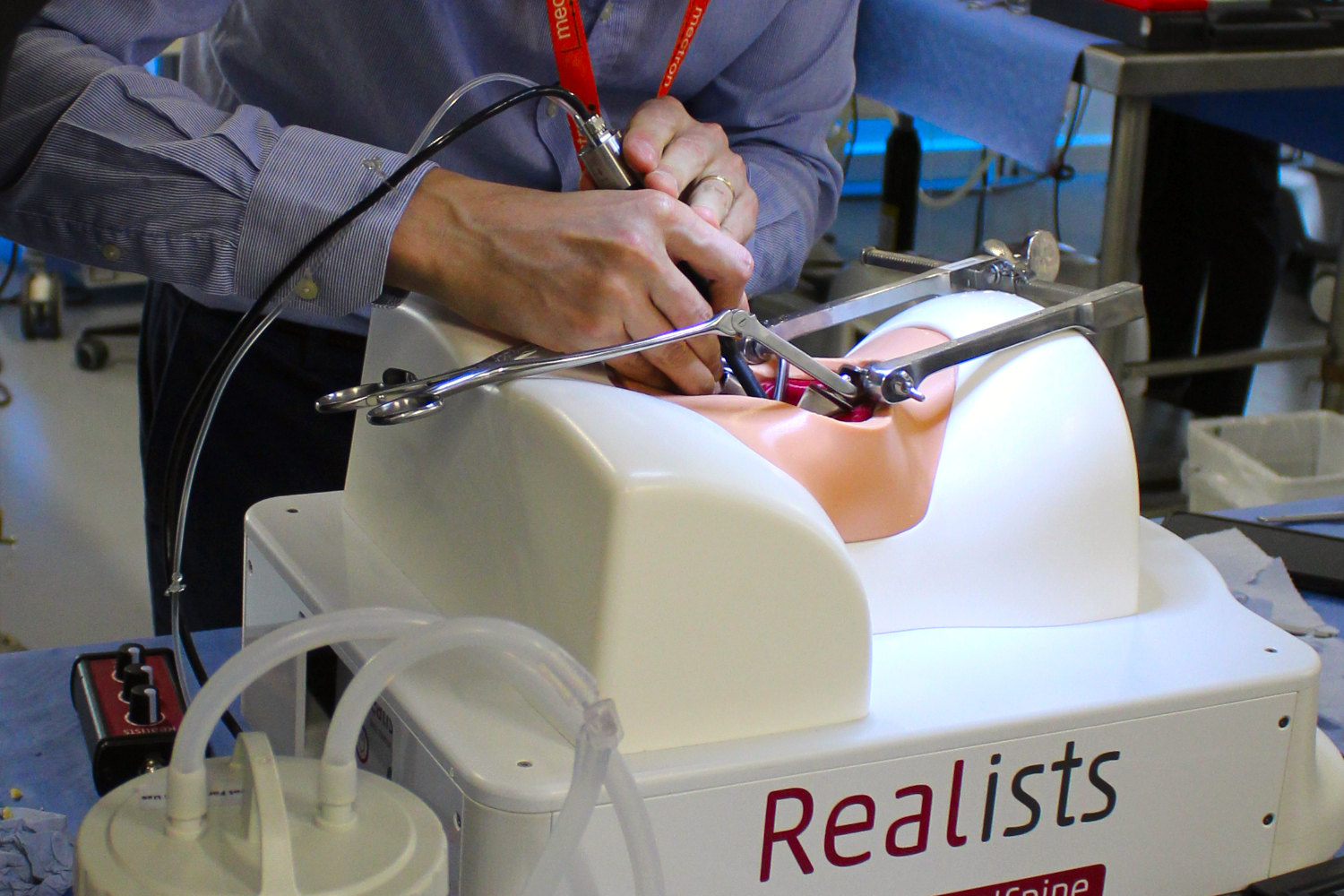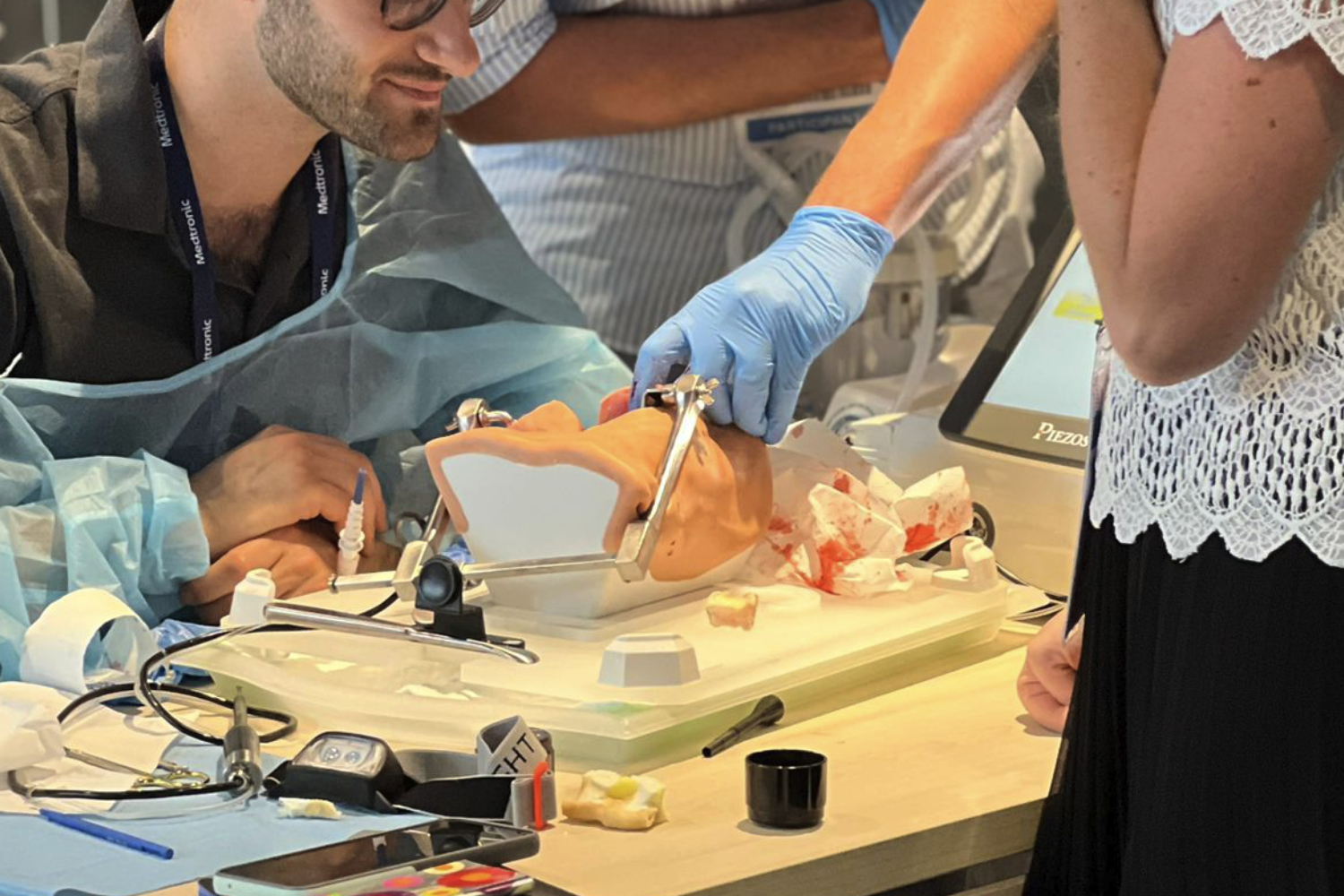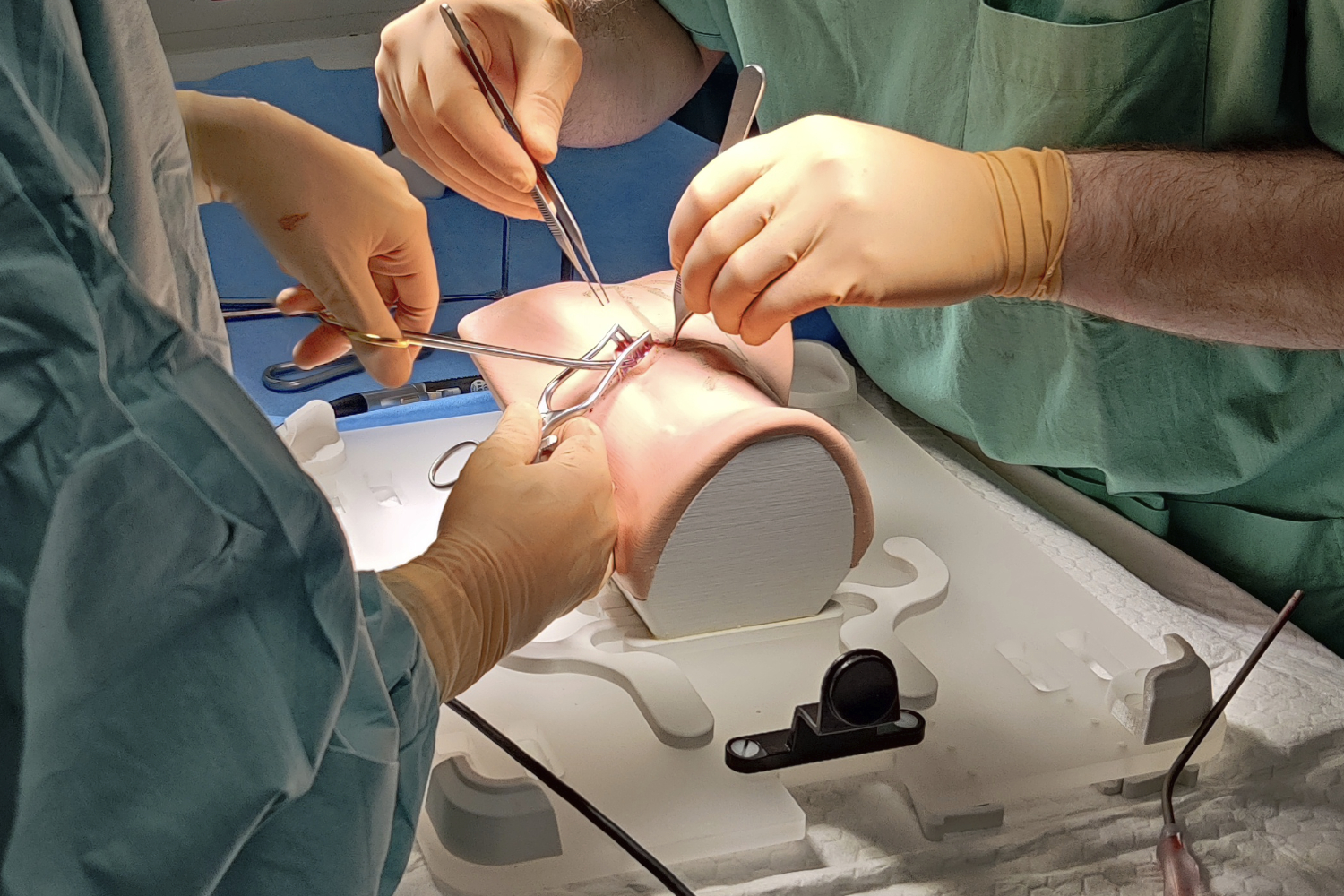Boost the Accuracy of Your Research: Realistic Simulation for Scientific Studies
For Researchers
Achieve unparalleled accuracy in your studies with Realists. Our anatomically precise simulators provide a standardized, repeatable environment for scientific research, ensuring reliable data and eliminating experimental bias. Trusted by leading researchers and MedTech companies worldwide, we are shaping the future of medical innovation.
Over a Decade of Designing Realistic Simulators for Research
Anatomical fidelity is essential for scientific research
At Realists, we have been developing high-precision surgical simulators for over 10 years, providing researchers with a reliable and repeatable platform for their studies. Our models ensure that experiments can be replicated under consistent conditions, minimizing variability and external influences.
- Standardized testing environments for accurate data collection.
- Eliminate experimental bias with anatomically precise models.
- Replicate trials without environmental variations.



Unmatched Anatomical Precision: Simulations That Reflect Reality
Our models, such as RealSpine, offer highly detailed anatomical structures, including tissues, fluids, and accurate bone landmarks. Scientific validation confirms their realism, ensuring that every study is based on reliable and reproducible conditions.
- Highly realistic representation of ligaments, nerves, and bone structures.
- Seamless integration with advanced technologies such as surgical navigation.


Trusted by Researchers Worldwide
Leading institutions, hospitals, and MedTech companies rely on our solutions for developing and testing medical devices. From technology validation to surgical training, our simulators are the preferred choice for experts.



For MedTech Companies: The Ideal Platform for New Product Development
If you develop technologies for minimally invasive surgery, you need testing environments that replicate real-life scenarios. With Realists, you can validate and demonstrate your products in a controlled and highly realistic setting.
- Optimize preclinical testing with high-fidelity simulators.
- Reduce costs in demonstrations and customer training.


Endorsed by experts



Scientific Evidence: RealSpine and the Enhancement of Surgical Competencies
The impact of RealSpine on surgical training is backed by scientific publications validating its effectiveness in improving surgeons’ skills and competencies. These studies highlight how our hyperrealistic simulator transforms learning, shortens training curves, and refines surgical techniques.
We invite you to explore these articles and discover how RealSpine is revolutionizing surgical education. If you have ideas or research projects, we would love to collaborate with you to further advance knowledge in this field.
The Use of Augmented Reality as an Educational Tool in Minimally Invasive Transforaminal Lumbar Interbody Fusion.
Authors: Schmidt, Franziska A. MD; Hussain, Ibrahim MD; Boadi, Blake BA; Sommer, Fabian J. MD; Thomé, Claudius MD; Härtl, Roger MD.Operative Neurosurgery 28(2):p 183-192, February 2025. | DOI: 10.1227/ons.0000000000001317
Non-cadaveric spine surgery simulator training in neurosurgical residency
Authors: Pöser P, Schenk R, Miller H, Alghamdi A, Lavalley A, Tielking K, Nissimov N, Früh A, Chakkalakal D, Patsouris V, Sargut TA, Mertens R, Xu R, Truckenmüller P, Ferdowssian K, Rösler J, Wasilewski D, Jelgersma C, Roethe A, Sanchin A, Vajkoczy P, Picht T, Onken JS. N Am Spine Soc J. 2024 Nov 9;20:100573.
Use of a High-Fidelity Training Simulator for Minimally Invasive Lumbar Decompression Increases Working Knowledge and Technical Skills Among Orthopedic and Neurosurgical Trainees
Authors: Melcher C, Hussain I, Kirnaz S, Goldberg JL, Sommer F, Navarro-Ramirez R, Medary B, Härtl R. Global Spine Journal. 2023;13(8):2182-2192.
Realistic surgical training environment for spinal surgery
Authors: Fenyöházi E, Jarvers JS, Torres OA Adermann J, Voigtländer M, Selig C Schrempf A, Härtl R, Josten C, Bernal Vera LE, Korb W. Journal für Neurologie, Neurochirurgie und Psychiatrie 2018; 19 (3), 96-102
Evaluation of self-assessment of participants of an innovative training for spine surgery
Authors: Jan-Sven Jarvers, Eszter Fenyöhazi, Jens Adermann, Susanne Kotzsch, Luis Bernal, Werner Korb, Christoph E. Heyde & Christoph Josten. Conference abstract - German Congress of Orthopaedics and Traumatology (DKOU 2016)
Development and validation of an artificial wetlab training system for the lumbar discectomy
Authors: Jens Adermann, Norman Geißler, Luis E. Bernal, Susanne Kotzsch, Werner Korb. European Spine Journal, September 2014, Volume 23, Issue 9, pp 1978–1983
Technological competence in the OR - Train the Trainer course concept with surgical simulators.
Authors: Andrej Machno, Norman Geißler, Susanne Kotzsch, Anke Hoffmeier, Luis Enrique Bernal Vera, Werner Korb. CURAC (Deutsche Gesellschaft für Computer und Roboterassistierte Chirurgie e.V.) 2013, 71-75
